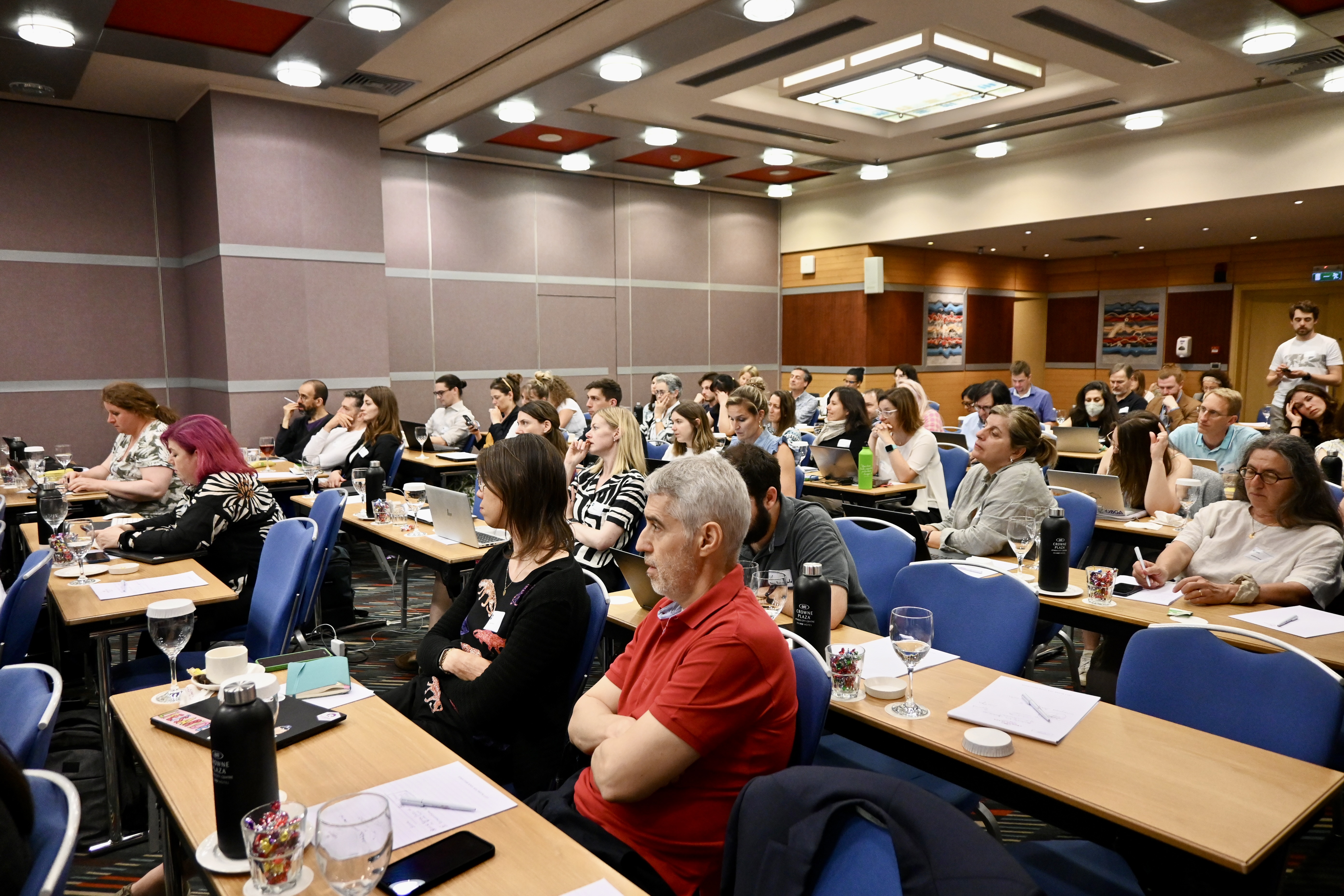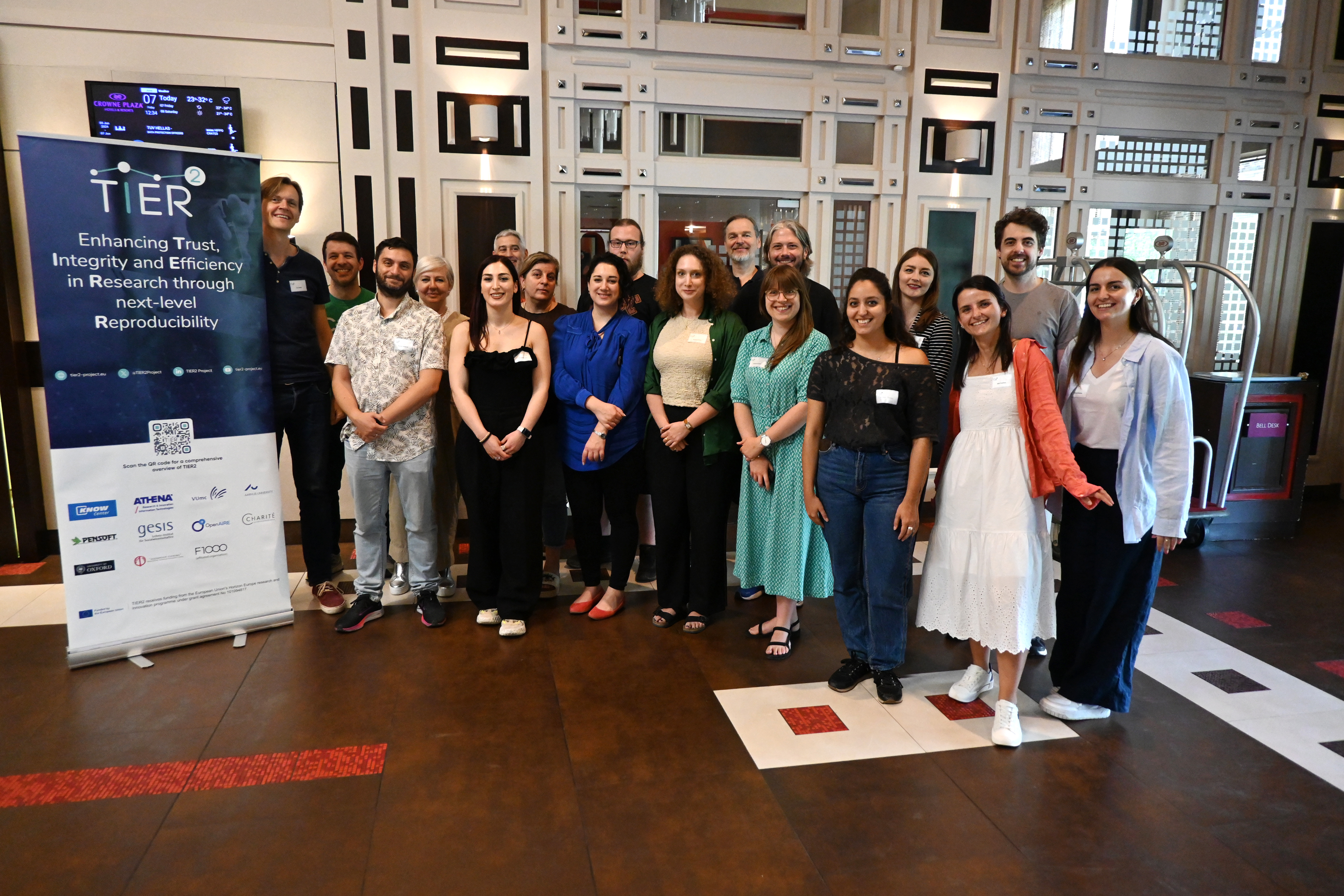Advancing reproducibility together: OSIRIS, TIER2 and iRISE joint meeting in Athens
Building on the momentum of the 8th World Conference on Research Integrity in Athens, OSIRIS, TIER2 and iRISE gathered for their first joint annual meeting. Spanning two days (6 and 7 June), the event united project partners, stakeholder representatives and advisory board members in a spirit of openness and collaboration.
The first day harnessed the collective expertise of our diverse group to tackle the complex issue of reproducibility – from foundational questions to collaborative efforts with stakeholders.
Strengthening the foundations
Malcolm Macleod kicked off with a keynote on reproducibility's significance, outlining progress and offering candid insights into potential solutions (slides here). Partners then delved into the nuances of terminology and approaches, emphasising epistemic diversity and the need for clear definitions. Rachel Heyard introduced iRISE’s living glossary, covering terms like reproducibility, replicability, and replication (accessible here). Sven Ulpts presented TIER2’s analytical framework to support epistemic diversity by evaluating reproducibility's relevance and feasibility across various knowledge production modes (preprint available here).
Analysing the state-of-play
Transitioning from the projects’ conceptual foundations, we analysed the current landscape of evidence on improving reproducibility. Mariska Leeflang (OSIRIS) and Tony Ross-Hellauer (TIER2) shared an upcoming joint scoping review that assesses which interventions have been formally tested for their effectiveness in improving reproducibility. Underlining the value of having access to early results from the OSIRIS/TIER2 scoping review, Kaitlyn Hair shared iRISE’s efforts to develop a platform summarising evidence on interventions (available here).

Participants during the Athens joint meeting
Testing interventions
After looking at the evidence, the discussions examined insights from the projects’ undertaking to test interventions: iRISE is conducting four intervention studies, while OSIRIS is tailoring interventions to suit institutions, journals, and funders. TIER2 is piloting eight specific activities to develop, implement, and evaluate new tools and practices. To explore collaboration opportunities among these, three breakout sessions were organised, focusing on researchers, funders, and publishers.
Collaborating for success
The day ended with an expert panel discussion on enhancing collaboration, promoting evidence-based policy-making, and facilitating the transfer of results. The panel comprised an EC policy officer and representatives from the project's three primary stakeholder groups: funders, researchers, and publishers.
TIER2 annual meeting
Following the joint sessions, on 7 June, each project delved into its unique discussions. TIER2 reflected on the past year and a half – marking the halfway point of the project – and planned for the future.

TIER2 members at their annual meeting
The day began with a review of our Pilot activities, discussing the identified synergies with OSIRIS and iRISE and seeking ways to enhance collaboration both internally and externally. We then considered progress in developing reproducibility tools and began planning how to synthesise our findings to meet the needs of stakeholders. The project’s legacy and sustainability were also discussed, evaluating dissemination strategies for longevity. Finally, we conducted a candid self-assessment of the challenges, costs, and benefits associated with our reproducibility efforts. And we couldn’t end without thanking our local organisers – Athena Research Center – who did an outstanding job in making us feel right at home in Athens!
